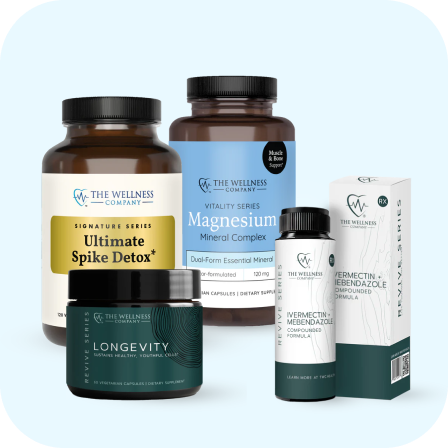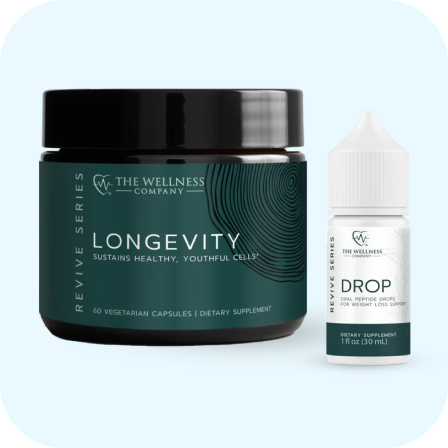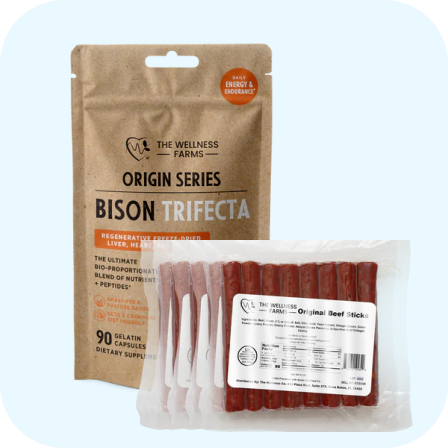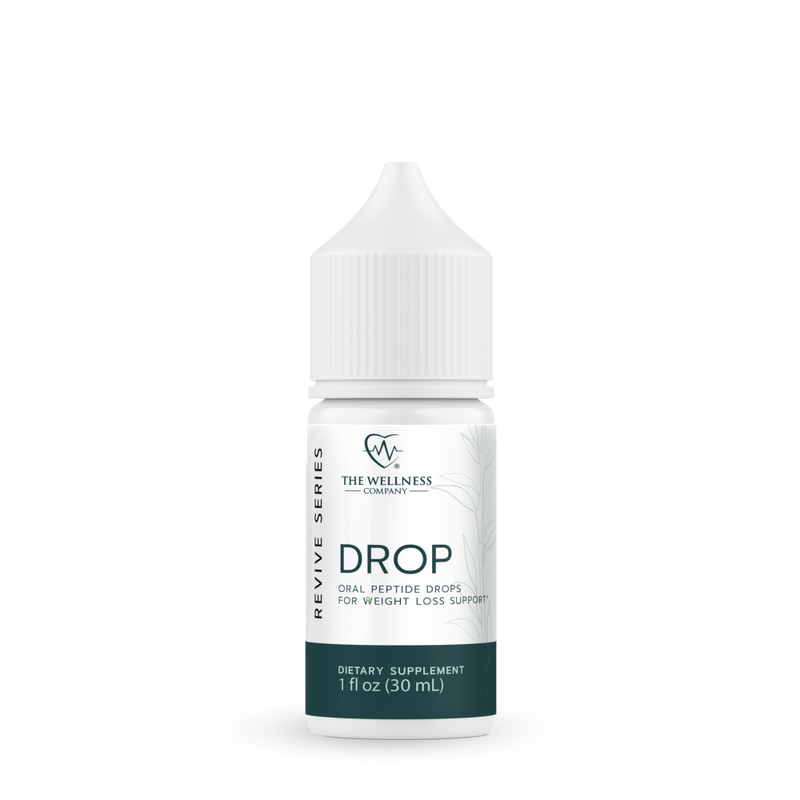Post-Pandemic Tsunami of Children Diagnosed With Diabetes - Why and What Can You Do
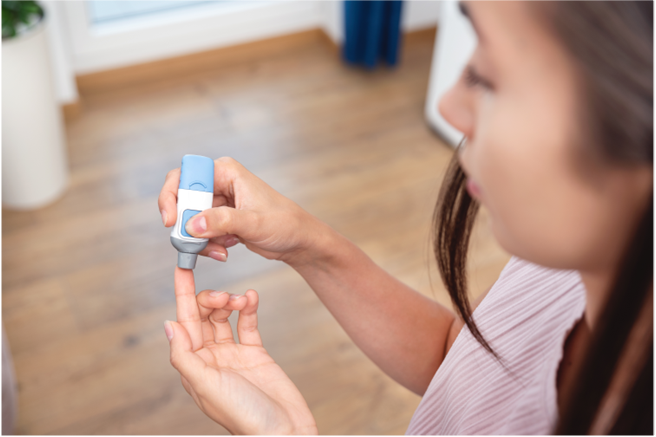
“We can add more diabetes among young persons as a consequence of the pandemic.”
Dr Peter McCullough, Chief Science Officer of The Wellness Company in reference to a recent study on type 2 diabetes in the pediatric population post covid infection, posted on his Courageous Discourse Substack.
An explosion of diabetes in the pediatric population, since the COVID-19 pandemic has some speculating it was due to our kids being stuck inside, not allowed to participate in sports, and eating junk food. While this may be true to some extent, an insidious byproduct of COVID-19 infections has been largely ignored.
- Following covid infection, there was an increased incidence of Type 1(insulin-dependent) and Type 2 (non-insulin-dependent) diabetes in children. (1,2)
- In fact, a recent study by Barett et al in the United States revealed the diagnosis of new cases of diabetes in children younger than 18 years was 166% more likely to occur within 30 days post-COVID-19 infection compared to those without COVID-19 during the pandemic. (2)
Already diagnosed- sicker than ever
Pediatric patients infected with covid and already diagnosed with both type 1 (insulin-dependent) and type 2 diabetes have reported poorly controlled glucose control, in some cases leading to diabetic ketoacidosis, a life-threatening condition. (3)
Why is this happening? What is the correlation between COVID-19 infection and the tsunami of diabetes cases in our youth?
Those ACE receptors aren’t just in the heart
Focus has been on what the spike protein does (vaccinated and unvaccinated) to the heart and cardiovascular system (blood clots, myocarditis, stroke, etc.) utilizing ACE2 (angiotensin-converting enzyme)in which the virus binds and enters the cell, resulting in infection. These receptors are found throughout the body, from kidneys to reproductive organs, to the gastrointestinal system, the pancreas, and more.
Covid destroys the pancreas- especially detrimental to children
- SARS-CoV2 infection has been linked to impaired pancreatic function through gene and ACE2 expression and inflammation due to oxidative stress and more.
- Until about age 9, the pancreas isn’t fully developed to excrete insulin and carry out other functions
- The maturation process of pancreatic islet cells doesn’t fully mature until early adolescence. This impairs the cells’ ability to respond (excrete insulin) to rising glucose levels. In other words, if the child eats a sugary or highly refined carbohydrate food, their body is unable to keep up with the amount of glucose entering the bloodstream. This in turn overloads the pancreas, causing high glucose levels in the blood, resulting in type 2 diabetes. (4)
- Research has pointed to the development of type 1 diabetes (insulin-dependent) in children as an attack on the pancreas from a pathogen, namely a virus. There are ongoing discussions, and no final conclusion, however, there does seem to be a correlation. (5)

There is hope- reverse damage, calm inflammation
If your child has been diagnosed with diabetes following COVID-19:
- Seek the help of a practitioner who has experience and education in post-COVID diabetes.
- Unlock your child’s immune potential with our exclusive blend of Bromelain, Pomegranate Peel, and Dandelion Root, inspired by our renowned Spike Support for adults.
- Vitamin C- Immune boosting
- Dandelion extract- demonstrated ability to inhibit spike protein binding on ACE2 receptors (6)
- Pomegranate fights free radicals defends against free radical damage
- Rutin- works with bromelain to calm inflammation, allowing the body to heal
- Bromelain demonstrated powerful antiviral against COVID-19 (7)
- Papain- also demonstrated antiviral against covid (8)

Citations
- Akhtar, S., Naseem, S., Ghani, R., Iqbal, N., Akhtar, S., Iqbal, M., & Iqbal, J. (2024). Comparison of clinical and biochemical characteristics of type 1 and type 2 diabetes in children and adolescents: a cross-sectional study from Pakistan. Diabetology & Metabolic Syndrome, 16(1), 14. https://doi.org/10.1186/s13098-024-01267-2
- Barrett, C. E., Koyama, A. K., Alvarez, P., Chow, W., Lundeen, E. A., Perrine, C. G., Pavkov, M. E., Rolka, D. B., Wiltz, J. L., Bull-Otterson, L., Gray, S., Boehmer, T. K., Gundlapalli, A. V., Siegel, D. A., Kompaniyets, L., Goodman, A. B., Mahon, B. E., Tauxe, R. V., Remley, K., & Saydah, S. (2022). Risk for newly diagnosed diabetes >30 days after SARS-CoV-2 infection among persons aged <18 years — United States, March 1, 2020–June 28, 2021. Morbidity and Mortality Weekly Report, 71(2), 59-65. https://doi.org/10.15585/mmwr.mm7102e2
- Chekhlabi N, Haoudar A, Echcharii N, Ettair S, Dini N. New-Onset Diabetes with Ketoacidosis Precipitated by COVID-19 in Children: A Report of Two Cases. Case Rep Pediatr. 2021 Jul 16;2021:5545258. doi: 10.1155/2021/5545258. PMID: 34327034; PMCID: PMC8302395.
- Conger, K. (2016, April 28). Age-dependent changes in pancreatic function related to diabetes. Stanford Medicine News Center. https://med.stanford.edu/news/all-news/2016/04/age-dependent-changes-in-pancreatic-function-related-to-diabetes.html
- Beyerlein, A., Donnachie, E., Jergens, S., & Ziegler, A. (2016). Infections in early life and development of type 1 diabetes. JAMA, 315(17), 1899-1901. https://doi.org/10.1001/jama.2016.2181
- Tran HTT, Gigl M, Le NPK, Dawid C, Lamy E. In Vitro Effect of Taraxacum officinale Leaf Aqueous Extract on the Interaction between ACE2 Cell Surface Receptor and SARS-CoV-2 Spike Protein D614 and Four Mutants. Pharmaceuticals (Basel). 2021 Oct 17;14(10):1055. doi: 10.3390/ph14101055. PMID: 34681279; PMCID: PMC8538008.
- Sagar S, Rathinavel AK, Lutz WE, Struble LR, Khurana S, Schnaubelt AT, Mishra NK, Guda C, Broadhurst MJ, Reid SPM, Bayles KW, Borgstahl GEO, Radhakrishnan P. Bromelain Inhibits SARS-CoV-2 Infection in VeroE6 Cells. bioRxiv [Preprint]. 2020 Sep 16:2020.09.16.297366. doi: 10.1101/2020.09.16.297366. Update in: Clin Transl Med. 2021 Feb;11(2):e281. doi: 10.1002/ctm2.281. PMID: 32995771; PMCID: PMC7523097.
- Ran XH, Zhu JW, Chen YY, Ni RZ, Mu D. Papain-like protease of SARS-CoV-2 inhibits RLR signaling in a deubiquitination-dependent and deubiquitination-independent manner. Front Immunol. 2022 Aug 12;13:947272. doi: 10.3389/fimmu.2022.947272. PMID: 36032116; PMCID: PMC9411789.
Written By Brooke Lounsbury







